Movies to watch this week at the cinema: Assassin's Creed, Silence, A Monster Calls, more...
Out on Sunday 1 January and Friday 6 January
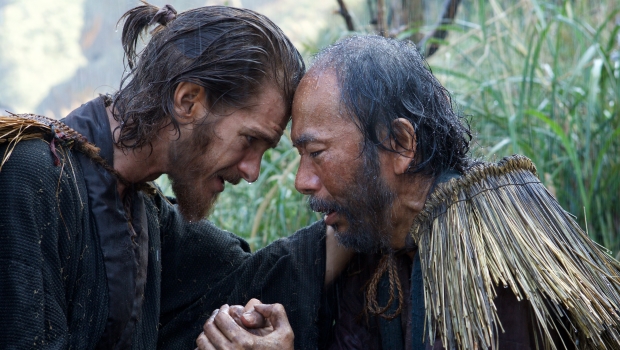
Michael Fassbender enters the world of gaming. Scorsese blends his twin religions of Catholicism and cinema. J.A. Bayona delivers a tree-mendous fantasy.
Yes, here's this week's new releases. Click on for our reviews of Assassin's Creed, Silence, A Monster Calls, and Endless Poetry.
For the best movie reviews, subscribe to Total Film.
Assassin's Creed
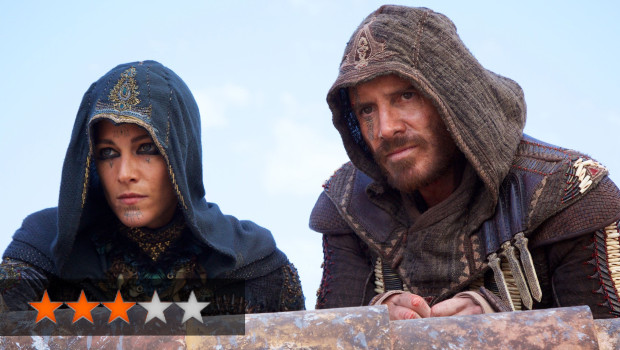
When it comes to videogame franchises, Ubisoft’s Assassin’s Creed series is an industry giant: with nine games and 17 spin-off titles on the shelves, this multi-platform monster has inspired short films and frequent novelisations too. So it was only a matter of time before Hollywood got its hands on this tale of past and present, ancestors and descendants and the warring-for-centuries Assassins and Knights Templar.
Surely mindful of the ropey reputation of games-to-movies – Duncan Jones’ Warcraft being the latest disappointment in an increasingly long line – Ubisoft, who are on board, has looked to buck that trend. The core creative team gathered here is exemplary: Australian director Justin Kurzel reunites with Michael Fassbender (who also produces) and Marion Cotillard, who together starred in Kurzel’s 2015 muddy and bloody Shakespeare adaptation, Macbeth.
Factor in co-stars Jeremy Irons, Charlotte Rampling and Brendan Gleeson and you have an undeniably impressive roll-call. Rarely has a videogame adaptation boasted such acting heavyweights.
So does it work? Well, yes and no. Ambitious and stylish, it’s a loving recreation of certain elements that made the series so popular among gamers. But emotionally? It’s a dead-weight, Kurzel and co. struggling to make us care about these characters caught up in this chase for the so-called Apple of Eden.
Bringing all the latest movie news, features, and reviews to your inbox
The film starts in 1492 in Andalucía, Spain, with captions introducing us to the central premise: the Apple of Eden, said to contain the genetic code to man’s free will, is being sought by a group known as the Knights Templar.
Those who possess the Apple will be able to control freedom of thought – but standing in the way of the KT are the Assassins. At the forefront of this secret society – “we work in the dark to secure the light” – is the ultra-limber, tattoo-clad Aguilar (Fassbender).
As fans will swiftly gather, Assassin’s Creed doesn’t follow the adventures of Desmond Miles or any of the main protagonists from the games. Rather, it creates a new character to drop into a familiar world.
After a brief scene in Mexico 1986, where we meet the young Callum Lynch just as he discovers his own father has sliced up his mother, we cut to a Texas penitentiary in the present day. Cal (now played by Fassbender) is a convicted killer, about to face lethal injection. His last words? “Tell my father I’ll see him in hell.”
Rather than meet his maker, Cal wakes up in a secure rehabilitation facility in Madrid. “You no longer exist,” says the watching Dr. Sophia Rikkin (Cotillard). Quite how the company owned by her father Alan Rikkin (Irons) managed to extricate Cal from Death Row in America is never explained. But given they’re being bankrolled to the tune of $3 billion a year by a shadowy outfit called ‘the Elders’, led by Charlotte Rampling’s Ellen Kaye, we’ll assume they’re quite powerful.
When it becomes clear that Cal is the last descendant of the Assassins brotherhood, the Rikkins want to plug back into the ancestral memories lodged in his DNA. Why? “To pioneer new ways to end violence,” he is told, one of the more frustratingly vague elements of the script by Adam Cooper and Bill Collage (who penned Exodus: Gods and Kings) and Michael Lesslie (Kurzel’s Macbeth).
Locking into a device called the Animus, Cal is suddenly whisked back 500 years and into Aguilar’s storyline. As Aguilar runs, jumps, fights and climbs, so Cal does the same – becoming stronger and more agile as he is manoeuvred around the lab by a giant pincer. It’s one of the film’s more impressive visual motifs, brilliantly realised – likewise, the so-called “bleeding effect” hallucinations, where Aguilar appears to be in the same room as Cal.
Returning to the 15th Century, where Aguilar and his fellow Assassins are looking for the Apple amid a story that involves the young Prince of Granada, the Spanish Inquisition and the burning of religious heretics, Kurzel captures the feel of the game impressively.
From stealth moves to p.o.v. arrow-firing to gravity-defying leaps, there’s exhilaration to spare. If ever a film of the Uncharted games gets the green light, Kurzel should be given first refusal.
The problems lie with the frequent switching back-and-forth between timelines, ensuring no real rhythm is ever established between past and present. As the last three X-movies proved, Fassbender is perfectly adept in physical blockbuster roles, but even he struggles with Cal, a character with “a pre-disposition to violence” with whom it’s rather difficult to develop any meaningful connection (even when Brendan Gleeson, as his father, turns up).
Irons and Cotillard are engaging presences, but have little to work with here.
Their father-daughter relationship, and the differences that divide their approach to science, are explored in only the most cursory of fashions. Better, perhaps, are the others in the Rikkins’ facility, in particular Michael K. Williams (Omar from The Wire), who plays one of Cal’s fellow inmates and – in a third-act surprise – proves just how handy he is in a fight.
Perhaps the biggest issue is the very centre of the story. The war between the Assassins and the Knights Templar, and the quest for the Apple, never feels particularly tense or high-stakes. A final segment in modern-day London (shot in the stunning Freemason’s Hall) ought to lead to an explosive climax, but you can’t help feeling underwhelmed by a story that never really manages to fuse its connective tissue into anything significant.
Of course, the set-up suggests a sequel may be forthcoming – but the very past/present nature of the Assassin’s Creed games suggests the difficulties that blight this adaptation would dog any future film.
Still, credit Kurzel and his regular DoP Adam Arkapaw for recreating the spirit of the series. In an age when Hollywood has apparently little regard for the legions of gamers out there who love these titles, they’ve tried to protect their interests. If only they’d had a better script...
THE VERDICT: Valiant, but flawed. Some of the set-pieces are superb, but there isn’t enough meat on the bones to turn this into a classic.
Director: Justin Kurzel; Starring: Michael Fassbender, Marion Cotillard, Jeremy Irons, Brendan Gleeson; Theatrical release: January 1, 2017
James Mottram
Silence
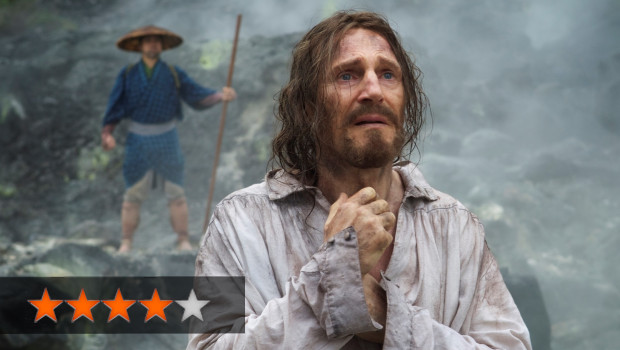
In his riveting documentary A Personal Journey With Martin Scorsese Through American Movies (1995), Scorsese talks of alternating commercial movies with personal ventures – a ‘one for them, one for me’ policy.
Silence, more than even the long-gestating Gangs of New York, is Marty’s ultimate ‘me time’, a religious thriller that he’s wrestled towards the screen for 27 years since discovering Shūsaku Endō’s same-titled book. The film finally reaches audiences as his first since The Wolf of Wall Street, which, at $392m, is his biggest box-office hit. One for them, one for him.
Silence follows the 1640 mission of two Portuguese Jesuit priests, Father Rodrigues (Andrew Garfield) and Father Garrpe (Adam Driver), as they sneak into Japan to propagate the outlawed faith of Christianity and to search for their missing mentor, Father Ferreira (Liam Neeson).
News, perhaps slanderous, has reached Portugal that Ferreira was tortured until he apostatized by stepping on an image of Christ. Refusing to believe such a thing, Rodrigues and Garrpe arrive to discover a land of crumbled churches and blood-soaked soil.
Stripping back his signature style to deliver a stately epic comprising largely static shots accompanied by next to no score, Scorsese nonetheless enthrals, his priests scuttling over verdant mountains, along roiling coastlines and down mist-wreathed rivers.
The near-constant murmur of wind and chirrup of insects are interrupted by hushed, urgent dialogues and a voiceover snatched from Rodrigues’ thoughts, prayers and letters home to Father Alonso (Ciarán Hinds), a busy soundscape that makes God’s silence all the more deafening.
And while the leads’ slip-sliding accents can snap the viewer out of this suspense-shivered fever dream – it’s hard not to long for Gael Garcia Bernal, Benicio del Toro and Daniel Day–Lewis, the cast of the 2009 iteration that fell apart – the craft is faultless.
Like The Last Temptation of Christ, Silence clashes the spiritual and the practical, the human and the divine. And like Mean Streets, Taxi Driver and Bringing Out the Dead, it searches for God among squalor and violence, with Inquisitor Inoue (Issei Ogata, superb) overseeing abominable tortures of body and soul to quash Catholicism.
Set at a time when 300,000 Catholics were forced to relinquish their faith or else practise it in secret, it is now Rodrigues’ turn to have his resolve put to the sternest of tests; he is not without pride, and his vision of himself as a Christ-like figure destined for martyrdom is about to be rigorously dismantled.
Just how multiplexers will respond to 160 minutes of frequently austere soul-searching remains to be seen, but it is gladdening that Scorsese’s own time of questioning and loneliness is over. Silence is his communion, and amen to that.
THE VERDICT: If you want GoodFellas 2, be warned this is more Kundun, as Scorsese blends his twin religions of Catholicism and cinema to considerable effect.
Director: Martin Scorsese; Starring: Andrew Garfield, Adam Driver, Liam Neeson; Theatrical release: January 1, 2017
Jamie Graham
A Monster Calls
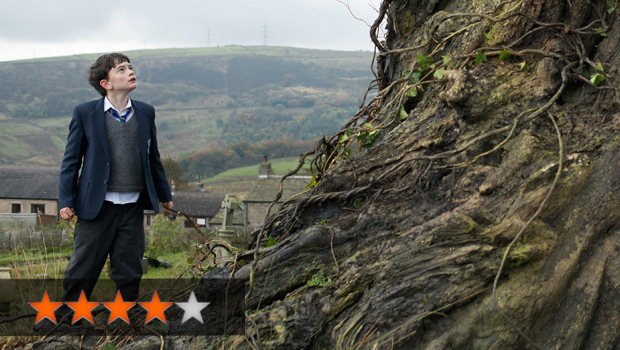
It's a cruel quirk of scheduling that A Monster Calls is releasing in cinemas on New Year’s Day. Thought the January blues were bad? An entire month of misery ain’t got nothing on the infinite sadness of J.A. Bayona’s fantastical tearjerker.
Having coaxed moments of startling distress out of a young cast in 2012’s The Impossible, Bayona pulls a similar trick here, lowering the intensity but doubling down on understated heartbreak. Near-newcomer Lewis MacDougall plays Conor O’Malley, a 12-year-old boy whose mother (Felicity Jones) is stricken with cancer.
One night the ancient yew tree visible from Conor’s bedroom window uproots itself in order to relay the first of three allegorical stories. After which, the Monster (Liam Neeson) claims, Conor will offer his own yarn – one that will “reveal his truth”.
The film’s blend of the everyday and the unreal raises questions: is Conor retreating into these dreams as a coping mechanism? Or is Neeson’s demonic ent genuinely some ancient wonder answering a desperate cry? Told from Conor’s perspective – all low angles and half-heard conversations through doors – there’s human tragedy underpinning every utterance and action. It’s a supremely affecting and sensitive depiction of internal turmoil.
The bulk of the film’s emotional burden is placed on the capable shoulders of MacDougall who impresses, even acting opposite pixels. Crucially, Conor isn’t a two-dimensional misery magnet. There are profoundly authentic observations about the unspoken traumas that a situation such as Conor’s can inflict.
Felicity Jones is inspired casting as Conor’s mother, her youth and natural warmth rendering her terminal illness all the more tragic. Toby Kebbell pops up as Conor’s estranged father, whose failings are masked behind a brave face.
Sigourney Weaver, meanwhile, goes British as Conor’s icy grandmother, a wobbly accent distracting from an otherwise measured performance. Patrick Ness, adapting his own novel, manages a masterful tone. It’s dour, but never oppressively so, punctuated by humour and cathartic injections of hope.
Such a contained tale could run the risk of feeling small, but is effortlessly cinematic under Bayona, who provides visual flair – most notably in two gorgeous, fully animated storybook sequences that take their inspiration from Jim Kay’s evocative novel illustrations.
As for the mo-cap Monster, it’s a memorable creation – gnarled branches, fiery eyes and Neeson’s sonorous cadence lending a sinister ambiguity to the beast’s motivation. Seamless VFX and performance work in unison to realise one of the most effective CG characters in recent memory.
If there’s a problem, it’s that the music can feel manipulative, and it’s not immediately clear how suitable this ‘family’ film is for its target audience – it may be a 12A, but drag adolescents along and back-to-school-blues will feel like a pick-me-up.
THE VERDICT: If this isn’t the biggest tearjerker of 2017 we’re in for a distressing year. A truly, ahem, tree-mendous fantasy.
Director: J.A. Bayona; Starring: Lewis MacDougall; Liam Neeson; Felicity Jones; Sigourney Weaver; Toby Kebbell; James Melville; Theatrical release: January 1, 2017
Jordan Farley
Endless Poetry
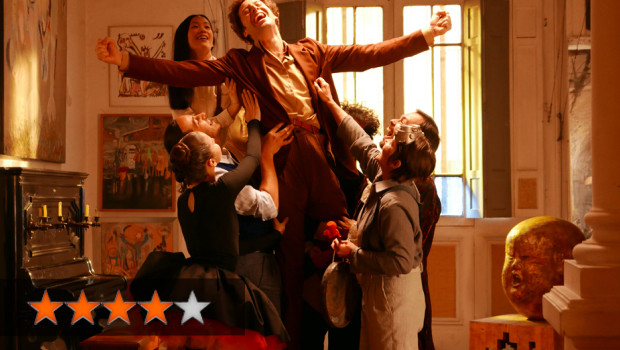
Picking up directly after 2013’s The Dance of Reality, veteran auteur Alejandro Jodorowsky (El Topo) continues his filmic memoirs. Charting his life in ’40s Chile as he flees his oppressive father, Jodorowsky (played by his son Adan) finds himself in the middle of a Bohemian subculture.
Mixing meta-theatre, existentialism and an infectious joie de vivre, this is both darkly hilarious and deliciously surreal.
Director: Alejandro Jodorowsky; Starring: Adan Jodorowsky, Brontis Jodorowsky, Leandro Taub; Theatrical release: January 6, 2017
Tim Coleman
The Total Film team are made up of the finest minds in all of film journalism. They are: Editor Jane Crowther, Deputy Editor Matt Maytum, Reviews Ed Matthew Leyland, News Editor Jordan Farley, and Online Editor Emily Murray. Expect exclusive news, reviews, features, and more from the team behind the smarter movie magazine.


